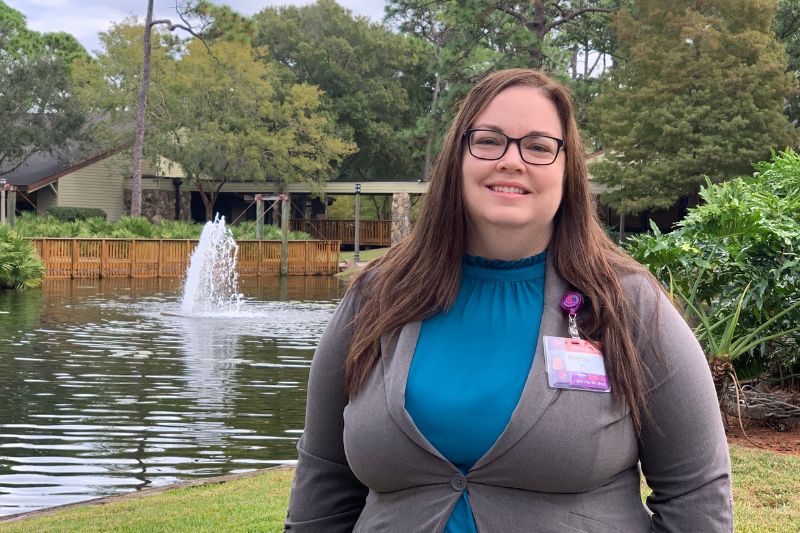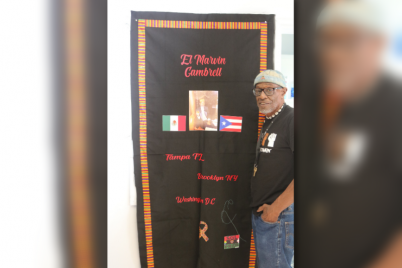To help her clients cope with the loss of a loved one during the holidays, Megan Bruno, LMHC, Bereavement Counselor Suncoast Hospice, offers strategies for a successful season, such as making a plan for navigating those special days and events.
PINELLAS COUNTY — After the loss of a loved one, any holiday can be challenging. The winter holidays especially are when friends and family come together to share love and support. Not knowing what the day will bring may heighten feelings of anxiety, and gatherings can amplify the absence of someone who has passed.
“Throughout our loss, there are going to be special days where grief is more present,” explained Megan Bruno, LMHC, bereavement counselor for Suncoast Hospice, a member of Empath Health. “This is a normal part of the grief process.”
Though everyone experiences grief differently, the struggle of the holiday season is an almost universal experience. During the time around Thanksgiving through the new year, Bruno often sees an influx of counseling referrals. To help her clients cope, she offers strategies for a successful season, such as making a plan for navigating those special days and events.
“It’s easy to say you’re going to stay home and pretend it’s just a normal day,” said Bruno. “But family, television, radio, and things of that nature won’t let that happen. Having a plan in place can make it easier to manage those overwhelming feelings.”
A good plan should include an exit strategy. Think of how you might excuse yourself early from a gathering. Saying you need to walk the dog or want to avoid traffic are commonly accepted circumstances that can help you leave without feeling any extra pressure to stay. If you are attending a religious service, recital, or another event, choose a seat in the back and on an aisle if you start feeling overwhelmed and need to step out.
While planning, it is also essential to evaluate what you must do, what you will do, and what you won’t do. Use this time to be realistic about what you can do for the holiday and set expectations with your family.
Bruno gives the example of a holiday dinner. Formal dinners where the family gathers around the table can bring attention to the fact that a loved one is not there. If this is a source of anxiety, she suggests switching to a more informal gathering where that empty seat isn’t noticeable. Changes to traditions don’t have to be permanent and can always be re-evaluated as your needs change.
It can be challenging to avoid decorations, music, and the atmosphere of joy and cheer in stores and other public places during the holiday season. Shopping online, using curbside pick-up, or creating your own handmade gifts can eliminate some of this stress. Homemade baked goods, works of art, or other handcrafted items are all meaningful gifts that don’t require going to the mall.
It’s also important to remember that you don’t have to stick to the plan. If your feelings change on the holiday, that is okay. Be kind to yourself and do what you feel most comfortable with.
Some people find memorializing their loved ones a comforting way to acknowledge their grief during important days. Come together as a family to decide which touchstones will honor their importance. This may be preparing a favorite dish even if no one else likes it, setting a place at the table, lighting a candle, setting up a photo, or just taking time to talk about the person.
Don’t forget that children may be grieving during this time too. Anxiety about the holiday may manifest through behavioral changes, like fidgeting or a lack of attention. Including them in conversations can help with the grief process. Ask kids for their ideas on changing up traditions or memorializing a loved one.
If you aren’t experiencing a loss yourself but want to support someone grieving, approaching the subject from a place of you don’t understand how they are feeling but want to be there can be helpful. Acknowledge that they are hurting and offer space for them to talk about it. Give options for joining in on events but remind them they don’t have to attend, and an answer isn’t needed right away. Offering space to grieve without pressure to behave a certain way is an essential act of empathy.
“The way everyone grieves is unique,” said Bruno. “Letting someone you care about know they aren’t alone and aren’t strange can be a beautiful connection between people.”

Karin Davis-Pritchett
Learn more about how Empath Health offers support to those who have lost a loved one or during times of serious illness by visiting EmpathHealth.org/grief-services.












